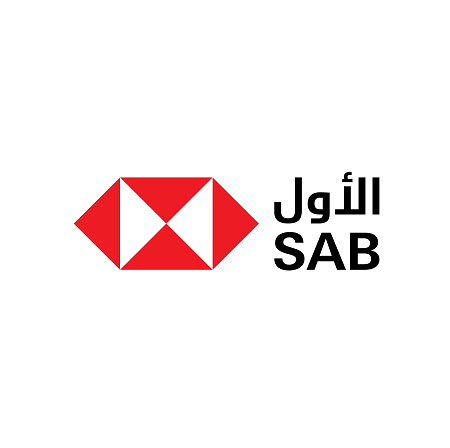-
Wealth Management
-
-
Low Limit Credit Cards
-
Debit Cards
-
Prepaid Card
-
ICSAB+
-
Finance
-
Help & Support
-
-
Help & Support
-
Cards
-
-
-
Tools & Resources
-
Ways to Bank
-
Help & Support
-
ESG at SAB
-
Security
-


Frequently Asked Questions
Have questions about SAB banking services? Let us help you with these frequently asked questions.
FAQSCustomer Service
Our friendly Customer Support team are on hand to help with any queries you have. We're here to help!
Contact UsQuick Links

SAUDI BUILDS ECONOMIC RESILIENCE BY DIALLING UP NON-OIL SPENDING

Saudi Arabia is investing for the future.
For the sixth consecutive quarter, the kingdom has reported a budget deficit, driven by increased spending on capital projects and other areas that outpaced revenue growth.
In the first quarter of 2024, the deficit amounted to SAR 12.4 billion, marking a significant increase from the same period last year, according to a statement from the Ministry of Finance. However, this deficit was an improvement from the end of 2023, when it stood at approximately SAR 37 billion.
Total expenditures saw an 8% year-on-year increase, while revenues expanded by 4%, with growth observed in both oil and non-oil revenue streams.
The kingdom's budget has been in deficit since late 2022, following the authorities’ decision to reduce oil production to stabilise global prices. Concurrently, Saudi Arabia has been ramping up spending to complete ongoing projects and foster new industries as part of Crown Prince Mohammed bin Salman’s Vision 2030 initiative aimed at economic diversification.
The government anticipates a budget deficit of SAR 79 billion for the current year, with expectations for deficits to persist in 2025 and 2026.
NON-OIL REVENUES SOAR
Meanwhile, the ministry’s quarterly performance report highlighted a notable 9% increase in non-oil revenues, reaching SAR 293.43 billion annually, primarily bolstered by higher taxes on goods and services.
During the specified period, taxes in this category surged by 11% to around SAR 70 billion, constituting nearly a quarter of total government revenues and approximately 63% of non-oil income. These taxes target specific products or services, such as excise tax, value-added tax, and levies on expatriates.
The share of non-oil revenues in the government's overall income rose to 38% from 36% in the same quarter of 2023. Other significant contributors to non-oil revenue growth were classified as “other revenues”, encompassing income from various sources like sales by public government units and fees from services like port operations and administrative charges.
Oil revenues experienced a modest 2% increase, reaching SAR 181 billion. However, their percentage share of total government revenues decreased from 64% in the same quarter of the previous year to 62%. This brought the total government revenues to SAR 293.43 billion.
The moderation in oil revenues can be attributed to the voluntary production cuts adopted by OPEC+ members, including Saudi Arabia, which extended a 1-million-barrel-per-day reduction until the end of the second quarter of 2024. The output curbs were initially implemented in July 2023.
JOB CREATION
Saudi Arabia’s real gross domestic product (GDP) decreased by 1.8% in the first quarter, compared to the same period in 2023, according to flash estimates released by the General Authority for Statistics (GASTAT). This decrease was primarily driven by a 10.6% decline in oil activities. While non-oil activities increased by 2.8%, and government activities grew by 2% on an annual basis.
The kingdom’s overall unemployment rate hit 4.4% in the fourth quarter of 2023, declining 0.7 percentage points (PP) from the previous quarter and 0.4 pp from a year ago, suggesting strong economic activity. Unemployment rate among Saudi citizens hit 7.7% during the period, declining 0.9 pp, according to GASTAT.
Employment-to-population ratio among Saudi women rose 0.6 pp to 30.7%. The participation rate decreased by 0.4 pp to 35.5%, while unemployment rate decreased by 2.6 pp to 13.7% compared to the previous quarter.
As for Saudi males, employment-to-population ratio and labour force participation rate decreased by 0.2 pp and reached 63.5% compared to the previous quarter. The unemployment rate remained unchanged at 4.6%, compared to the previous quarter of 2023.
MANUFACTURING
Fostering technological innovation and building local expertise in critical sectors like manufacturing will support the country’s knowledge economy initiative.
OIL
Summer-related activities like travelling during the third quarter will further boost worldwide demand for transport fuels.
TRADE
The European Union will advocate for trade policies that promote fairness and transparency, as more European companies do business in the kingdom.
ESG
New power projects, as well as ongoing environmental initiatives, signal the country’s shift towards a more sustainable future.
Your are now leaving this site
Your are now leaving this site
You are about to leave this site. You are being redirected to an external site. Would you like to leave this site?
© SAB, Saudi Arabia. All Rights Reserved, 2025
Saudi Awwal Bank, a listed joint stock company, incorporated in the Kingdom of Saudi Arabia, with paid in capital of SAR 20,547,945,220, commercial registration certificate 1010025779, unified number 7000018668, Mailing Address: P.O. Box 9084, Riyadh 11413. National Address: 7383 King Fahad Branch Rd, 2338 Al Yasmeen Dist., 13325 Riyadh, Kingdom of Saudi Arabia, Tel. +966 11 4050677, www.sab.com, licensed pursuant to the Council of Ministers Resolution No. 198 dated 06/02/1398H and Royal Decree No. M/4 dated 12/08/1398H, and regulated and supervised by the Saudi Central Bank.

